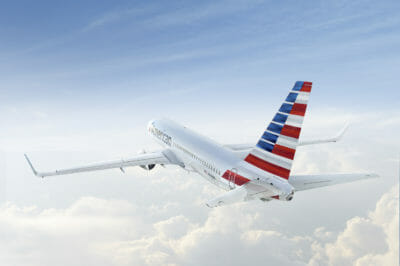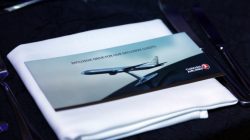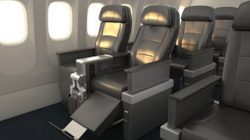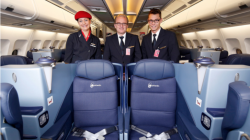Brett Snyder wrote an article for Conde Nast Traveler in which he argued that ancillary fees — the kind you pay for bag check and extra legroom — are being used to pay for other improvements in your travel experience. Great, right? Specifically, he cites the following examples at Delta Air Lines:
- A partnership with Westin to bring their Heavenly bedding to business class cabins.
- The installation of those lie-flat beds in business class cabins.
- Renovation of Delta SkyClubs.
- Adding WiFi and Economy Comfort seats to the economy class cabins.
My problem with this list is that if you fly in first or business class, you get expedited check-in, priority security, priority boarding, assigned seats, a meal, and a generous free checked baggage allowance. If you’re traveling on an international flight, the lie-flat seats, Westin Heavenly bedding, and access to the SkyClub is free.
If you are an average customer sitting in economy class, you will pay for every perk except, perhaps, a free soda while you’re squeezed in 32B between Tweedle Dee and Tweedle Dum.
Why is Joe Sixpack paying baggage fees so Ritchie Rich can get Heavenly bedding and a lie-flat seat? I understand the need to pay for WiFi access on a plane, but why should that be used to also pay for WiFi access in the SkyClub?
If a business class passenger wants Heavenly bedding instead of standard bedding, maybe he should pay a fee for a “premium bedding” package. Or maybe if the SkyClub is being improved, they could raise the membership fee. That’s what United Airlines is doing.
Brett did tell me over Twitter that one reason these fees have to be tacked on later instead of included in a higher fare is that customers are price sensitive and will gravitate to the cheapest ticket, since that’s the first number they see. Added fees are a shock that comes later. I don’t disagree with this. Most passengers don’t consider the total price.
But does that mean Delta has to charge extra baggage fees to economy class passengers in order to attract first and business class passengers with competitive fares? The usual pricing strategy for airlines is that a disproportionate share of the revenue comes from the front of the plane. Premium cabin passengers pay much higher fares relative to the added space and weight requirements, and historically, first class subsidized economy class.
Now we have a twisted circle where economy class passengers pay ancillary fees to subsidize amenities for first class passengers in order that first class fares remain competitive so that first class passengers will still buy tickets and subsidize the economy class fares. It’s all starting to give me a headache.
United Airlines will refund your fee if your in-flight DirectTV system stops working. Alaska Airlines will refund your fee if your bag arrives late at the carousel. Linking fees to benefits is fair. At the same time, I don’t mind if airlines skim a little off the top to pay for some other services indirectly.
But you can’t pay for all the improvements to premium cabins and elite benefits just by robbing the poor, so to speak. Premium cabin passengers are less price-sensitive than those in the back, so I think there needs to be more responsibility on the airline’s part to pay for some of these improvements using revenue from those customers who directly benefit.
Maybe I have this all wrong. I’d love to hear your thoughts. I don’t actually think this is Delta’s strategy, but it’s my interpretation of Brett’s post.
Update: @kziel on Twitter had a good idea for how this might be working:
Actually, ancillary fees subsidize premium cabin upgrades. And premium pax subsidize everything else (including Y pax)
So we have two systems here. Paid first and business class may subsidize economy class fares, but ancillary fees subsidize other parts of the business, including the loyalty program that gives away a portion of those premium cabin seats for free.





